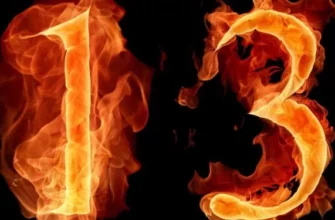- Resposta curta heroes & empires:
- Heroes & Empires: An Exploration of Historical Legends
- How Heroes & Empires Changed the Course of History
- A Step-by-Step Guide to Understanding and Honoring Heroes & Empires
- The Top FAQs About Heroes & Empires Explained
- From Spartacus to Napoleon: Examining the Most Iconic Heroes & Empires
- Discovering Modern-Day Relevance in the Legends of Heroes & Empires
Resposta curta heroes & empires:
Heroes & Empires é um termo que descreve personagens corajosos e países poderosos da história. Em diversos contextos, pode-se referir a pessoas influentes ou figuras históricas importantíssimas de grandes civilizações. Esses heróis podem ter imensas contribuições para seus impérios, tais como conquistas territoriais significativas ou a melhoria de suas culturas através do tempo.
Heroes & Empires: An Exploration of Historical Legends
In the world of historical legends, there are countless stories to be told about heroes and empires that have risen and fallen over the course of millennia. These tales capture our imagination and transport us to a time when brave men and women faced seemingly insurmountable challenges in order to achieve great things.
Perhaps one of the most intriguing aspects of these legendary stories is that they offer us glimpses into the mindset, values, and beliefs of people from different times and places. We can see how their experiences shaped their attitudes towards life, death, love, honor, faith, duty, power, and justice. We can also learn more about the social, political, economic, cultural contexts that influenced their actions.
For instance, consider the stories of King Arthur and his knights of Camelot. Despite being a product of medieval literature that was likely embellished over time with pagan and Christian elements from various sources (such as Welsh mythology or French romance), these legends still resonate with modern readers who yearn for ideals like integrity, chivalry, camaraderie, sacrifice.
Similarly, we can look at figures like Alexander the Great or Julius Caesar – conquerors who expanded their empires across vast territories through warfare but also promoted intellectual pursuits (like philosophy or science) that helped spread Greek/Roman culture throughout Eurasia/Africa. These heroes inspired admiration from some people but also criticism from others who saw them as ambitious tyrants who caused untold suffering.
Another fascinating example is Joan of Arc – a young peasant girl who claimed to have heard voices telling her to lead French troops against English invaders during the Hundred Years’ War. Her bravery on the battlefield (including getting injured multiple times) earned her a reputation as a national hero among fellow French Catholics but ultimately led her to be captured by enemies who accused her of witchcraft/heresy before burning her at stake. Her legacy has been debated ever since: was she truly divinely inspired or just a victim of political manipulation/exploitation/patriarchal oppression?
Indeed, the study of historical legends requires a critical approach that balances reverence for traditions with skepticism about myths. We need to acknowledge the limitations of our sources (such as literary bias, oral transmission, lost documents), challenge assumptions (such as gender roles, racial stereotypes, ideological biases), and compare different perspectives (such as cross-cultural variations, alternative viewpoints, revisionist narratives). Only then can we gain a more nuanced understanding of heroes and empires that will teach us valuable lessons about human nature and society.
So whether you’re an aspiring historian seeking to uncover new insights on famous figures or a curious reader looking to delve into tales of adventure and intrigue, Heroes & Empires: An Exploration of Historical Legends is a fascinating journey that will take you beyond mere spectacle into the realm of intellectual inquiry. Come join us on this epic quest!
How Heroes & Empires Changed the Course of History
History has been shaped by the actions of great individuals and powerful empires. From ancient civilizations to modern-day societies, there have been countless examples of heroes and empires who have altered the course of history through their actions and decisions. In this blog post, we will explore how heroes and empires changed the course of history.
Heroes are often celebrated for their bravery, courage, and determination in the face of adversity. They become symbols for a cause or a belief that inspires people to follow in their footsteps. One such hero is Martin Luther King Jr., who led the civil rights movement in America during the 1950s and 1960s. His non-violent protests against racial discrimination inspired millions of people around the world to fight for civil rights, leading to significant changes in legislation and societal attitudes towards race relations.
Another example is Florence Nightingale, known as “The Lady with the Lamp”. During her time as a nurse during the Crimean War, she implemented significant reforms that greatly improved hygiene standards in hospitals. Her efforts helped reduce mortality rates significantly among soldiers, making her one of the pioneers in modern nursing practices.
On the other hand, empires have always played a pivotal role in shaping history by extending their territorial influence through conquests or forming strong economic alliances with other countries. For example, Ancient Rome was one such empire that dominated much of Europe through its military might and infrastructure development.
Similarly, Great Britain’s colonization efforts during its empire days saw it amass vast territories stretching from Asia to Africa whereby it could access valuable resources such as gold mines and strategic ports necessary for trade boats; thus expanding British influence across continents which continues even today.
However not all empires held power on only firm land; some like Nazi Germany tried imposing themselves globally through war with atrocious massacres they formed what would be one worst humanitarian crisis known as The Holocaust leading to awakening on human rights.
In conclusion, heroes and empires have influenced and impacted our history, shaping it into what it’s today. Their actions and decisions had far-reaching consequences that affected not only their people but also buried themselves in the greater tapestry of mankind’s progress towards civilization. While we appreciate how they changed the course of history, it’s important to recognize them for who were notwithstanding the impact their deeds had; hence celebrating those across time who tried shaping the world as they knew how mere folk could.
A Step-by-Step Guide to Understanding and Honoring Heroes & Empires
As individuals, we have heroes whom we look up to and admire. These are people who inspire us to be better versions of ourselves, and perhaps even change the world in our own small way. Similarly, nations have their own heroes who symbolize the values and ideals they uphold. No matter what form these heroes take – whether they are real or fictional characters – it is important to understand their significance in order to honor them.
At the same time, many countries also have empires that represent the power and prestige they once held. These empires may have had a profound impact on history, but how should we view them today given all the complexities of colonialism? It can be difficult to reconcile an understanding of empire with values like social justice, freedom, and equality.
Here is a step-by-step guide for how you can grapple with these issues:
1. Understand the context: Heroes throughout history were often products of their environment. Familiarizing yourself with the particular struggles and challenges faced by your hero is key towards understanding why they inspire so many people.
2. Research opposing viewpoints: Heroes aren’t always universally acclaimed figures – some folks might find aspects about them offensive or disagreeable due to cultural biases or contemporary views incongruent with past mores related to gender or race etc . Reading about both positive as well as negative perspectives will give you a fuller picture of your hero’s achievements and legacy.
3. Analyze empires: Empires are complex entities that existed in vastly different contexts from today’s perspective. Divesting them of moral judgment requires undertaking a comprehensive study into historical context including geopolitics ,economic factors which led countries towards colonization . Before being able to recognize good done under empire(s), first acknowledge atrocities committed during their rule.
4. Celebrate shared values while acknowledging flaws: When we see heroes through the lens of our times rather than theirs, it’s not surprising that some elements may rub us up the wrong way. Having said that, it’s possible to separate behaviors or attitudes that weren’t acceptable back then from those values that are still relevant today.
5. Show appreciation: Whether it’s through commemoration days or public monuments, there are many ways to show gratitude for individuals who have left a positive impact on society.
In conclusion, understanding and honoring heroes and empires can be tricky given the complex nature of both concepts. But following this guide of research, analysis, appreciation while being sensitive to all perspectives will enable us to balance appreciating heroism against acknowledging past injustices related with Empires in manner most objective as possible- which is good news since heroic figures (both real and fictional) can inspire us to achieve greater things personally and globally but there is no need to glorify ruthless shows of power either !
The Top FAQs About Heroes & Empires Explained
Heroes and Empires is a popular game that is played by millions of people around the world. It is an exciting role-playing game in which players are tasked with building and managing their empire while leading their heroes to victory.
As with any popular game, there are always questions that players have about the rules, gameplay mechanics, and other aspects of Heroes and Empires. In this article, we will be exploring some of the most frequently asked questions about Heroes and Empires and providing detailed answers to them.
1) What exactly is Heroes & Empires?
Heroes & Empires is a role-playing game that allows players to build and manage their own empire while also commanding their own unique group of heroes. Players must lead their heroes into battle against enemies in order to conquer territories, expand their influence, and ultimately dominate other players in player-versus-player (PvP) combat.
2) Can I play Heroes & Empires for free?
Yes! While the game does offer a variety of optional paid features such as premium currency or extra resources, it is completely free-to-play for anyone who simply wants to try out the basic gameplay. Players can easily download the game from either Google Play or Apple App Store on their mobile devices.
3) How do I get started playing Heroes & Empires?
Getting started with Heroes & Empires is easy! Simply download the app from your phone’s app store, create an account or link one if you already have one on social media like Facebook or Google Play accounts), then follow along with the tutorial provided when you first launch into gameplay.
4) What kind of heroes can I recruit in Heroes & Empires?
Players can recruit many different types of heroes in Heroes & Empires depending upon factors such as race/class/specifications available at one point for recruiting purposes via recruitment events held regularly. Some classes encountered includes Warriors like Knights or Swordsmen; Mages like healers or necromancers; Strikers like Assassin or Ranger; Support like Bards, Clerics and more…
5) How can I improve my chances of winning in PvP battles?
The best way to improve your chances of winning in PvP battles is to focus on constantly upgrading your empire. This will both unlock new technologies and buildings for you to construct while also improving the overall stats and abilities of your heroes. Also, increasing the level of rarity of recruited heroes over time through Hero Shards acquisition (pre-defined currency that can gather 100 to redeem for a hero scroll which may provide hero shards as rewards if enough effort made during events or quest completion etc.) would often result into stronger heroes than those first chosen that came as trials when starting out playing this game.
6) Can I play Heroes & Empires with my friends?
Absolutely! Players can easily connect with their friends via Facebook, Google Play accounts or even other social networking channels within the game itself. This helps make gameplay more interesting as players can cooperate together while maximizing their collective strength on shared challenges.
7) Are there any limitations in terms of what devices Heroes & Empires is compatible with?
Heroes & Empires is compatible with most Android and iOS mobile devices released after late 2013 and onwards. However, it’s worth noting some advanced graphics may require higher-end machines so check device specifications before installing just to avoid slowing down performance or crashes due to overload occurring.
In conclusion, by now we’ve provided clarity on some predominant FAQs about Heroes & Empires – that being: it is a free-to-play role-playing game playable on most mobile devices available today via Google Play Store or Apple App Store; players are able to build up their own empires while leading various types of heroes including Warriors, Mages, Strikers or Support type characters into conquering territories throughout multiplayer gameplay against others from around the world using either Facebook, Google Play accounts or just their own gaming handle in app interface and lastly, Players are encouraged to keep improving their empire through completing events, quests, and making more powerful heroes by increasing one’s shard collection for bettering chances of success. With these tips under your belt, you’ll be well on your way to becoming a Hero yourself and ruling your empire!
From Spartacus to Napoleon: Examining the Most Iconic Heroes & Empires
From Spartacus to Napoleon: Examining the Most Iconic Heroes & Empires
Throughout history, there have been countless empires and heroes that have left their mark on the world. From ancient Rome to revolutionary France, these figures have shaped history in extraordinary ways and their legacies continue to inspire us today. In this post, we will examine some of the most iconic heroes and empires throughout time.
Spartacus
We begin our journey with Spartacus – a slave who became a gladiator and led a rebellion against the Roman Empire in 73 BC. Despite the odds stacked against him, Spartacus proved to be an exceptional leader and strategist; his army of slaves grew to over 70,000 strong and they managed to defeat several Roman armies. Spartacus’ rebellion ultimately failed due to infighting within his ranks, but his legacy has endured. His fight for freedom has inspired countless revolutionaries over the centuries.
Julius Caesar
Next on our list is Julius Caesar – one of the most influential figures in ancient Rome’s history. As a general, he conquered much of Gaul (modern-day France) which gave him unparalleled political power back home in Rome. In 44 BC, Caesar was assassinated by members of the Roman Senate who feared his growing power. Despite his untimely death, Caesar’s legacy lived on through his numerous reforms including adopting the Julian calendar which is still in use today.
Genghis Khan
Moving eastwards, we come across Genghis Khan – founder of the Mongol Empire which at its peak spanned over 24 million square kilometers making it one of largest empires in history. Genghis Khan was known for his military prowess as well as his progressive policies towards religious freedom and trade.
Napoleon Bonaparte
Finally, we arrive at Napoleon Bonaparte – emperor of France who rose to power during the French Revolution. Under his rule, France became the dominant power in Europe and Napoleon is widely regarded as one of the greatest military commanders in history. Despite ultimately suffering defeat, Napoleon’s tactics and strategies are still studied by military leaders around the world.
From Spartacus to Napoleon – each of these figures embody a different form of heroism that has inspired people throughout history. Whether it is freedom, political power, religious tolerance or military conquest, these heroes and empires have made their mark on the world and continue to inspire us with their stories today. Their legacies serve as a reminder that one person can change the course of history if they have enough will and determination.
Discovering Modern-Day Relevance in the Legends of Heroes & Empires
Legends of heroes and empires have been passed down through the ages, captivating generations with their inspiring tales of courage, bravery, and conquest. From Homer’s Iliad to Tolkien’s Middle Earth, myths and legends have shaped our collective consciousness and provided a glimpse into the world as it was once perceived.
However, what if these ancient stories are not just products of our imagination? What if they have real-life relevance in the modern world? The more we examine these ancient myths, the more we realize that they hold timeless truths that can help us navigate our way through contemporary life challenges.
In many ways, legends from the past are important guides towards understanding individuals and humanity as a whole. These stories offer insight into human behavior as well as society during different periods of history. For instance, some epic poems narrate events which demonstrate divine intervention–something which may seem foreign to us in this day and age. Yet when interpreted beyond literal meanings, there is an underlying value or lesson to be learned from them.
The hero’s journey is one such archetype that appears in many ancient mythologies- maybe most notably Homer’s “The Odyssey” – where a character embarks on an adventure that leads to self-discovery & personal transformation. While this approach may be unfamiliar for many people today; actualizing your best self is something universally valuable for anyone who wants to explore their own potential.
Furthermore, these stories often touch on universal themes like love, war, ambition & justice but demonstrate them in incredibly elaborate ways- allowing audiences to develop their perspective actively & become more empathetic or forward-thinking. For instance; Beowulf begins by exploring battles between good (Beowulf) vs evil (Grendel), but further taps into themes like kinship/loyalty/physical strength later evolving into a story about legacy-building & upholding societal traditions—a testament of how those values carry over multiple generations.
Similarly; epics like the Iliad tell a story of the human condition stripped of all selfish interests, showcasing fascinating reasons behind conflicts and wars during ancient times. Through such narratives, we learn that humans are imperfect, but there is also no limit to our potential for greatness if we set our hearts and minds towards working together towards a common goal.
In conclusion, legends from past centuries should not be seen as irrelevant or outmoded stories that belong to an era in the past. These narratives contain universal themes and values that ring just as true today as they did thousands of years ago. Ultimately; If we can learn to listen carefully enough & analyze ancient stories more critically – perhaps we have a shot at building better tomorrows!






